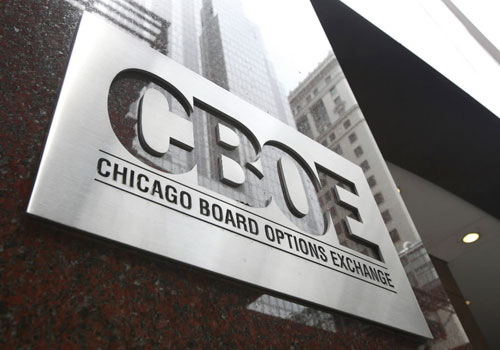Prohibiting market makers from paying retail brokers to route trade orders their way is a misguided notion that would hurt retail investors, according to Virtu Financial CEO Doug Cifu and Robinhood Chief Legal Officer Dan Gallagher.
Speaking Wednesday at the Security Trader Association’s annual market structure conference in Washington DC, Cifu acknowledged that payment for order flow presents a conflict of interest, but so do other principal-agent arrangements in financial services. The remedy is disclosure and transparency, not a ban.
“Sure there’s a conflict, but it’s been wholly mitigated through disclosure and even more so by the marketplace” competing to provide retail investors the best price and service, Cifu said. “What is so pernicious about this conflict that it requires being banned?”
“All retail platforms route their orders based on service and execution quality. It has nothing to do with payment for order flow,” Cifu said. He cited data that showed PFOF saves retail investors $11 billion annually.
Robinhood, the emergent retail brokerage that has 22.5 million active users, gets paid for routing its customer order flow to market makers. Speaking separately at STA, Gallagher corroborated Cifu’s statements, and defended the practice as essentially subsidizing retail investors.
“We send our orders where they get best execution. It doesn’t have anything to do with payment for order flow,” Gallagher said.
Founded in 2013 and publicly traded since July of this year, Robinhood is known for its strong appeal to young investors. The newest signups “care about no-minimum balance, they care about commission-free trading,” Gallagher said. “And guess what pays for that? Payment for order flow.”
Gallagher said a ban of PFOF would be a case of “nanny state” overreach, and is insulting to young customers. “Just because they’re new investors, they need to be protected — in a way that pretty much keeps them out of the market.”
Gallagher declined to answer what Robinhood would do if payment for order flow were banned, but he doesn’t think it will come to that. When the U.S. Securities and Exchange Commission closely examines the issue, the regulator “is going to see data indicating payment for order flow is good for retail investors.”
Cifu, formerly a corporate attorney, said the case against payment for order flow is lacking. “Who’s the plaintiff in this discussion?” he asked. “Someone needs to be complaining, or aggrieved. Who’s the aggrieved party? Retail investors have had a monumental reduction in commissions.”
Payment for order flow arrangements can be improved, Cifu noted. He suggested enhancing actionable information provided to investors, including payment amounts; enhancing conflict mitigants and competition; and improving SEC Rule 605 to provide complete execution quality reports.
Talk of banning PFOF is about politics and optics rather than substance, Cifu suggested. “I have not seen a single piece of data that refutes anything I’ve said,” he noted. “Today a retail investor can pull out a smartphone and get a better (trade execution) price than an institution.”





